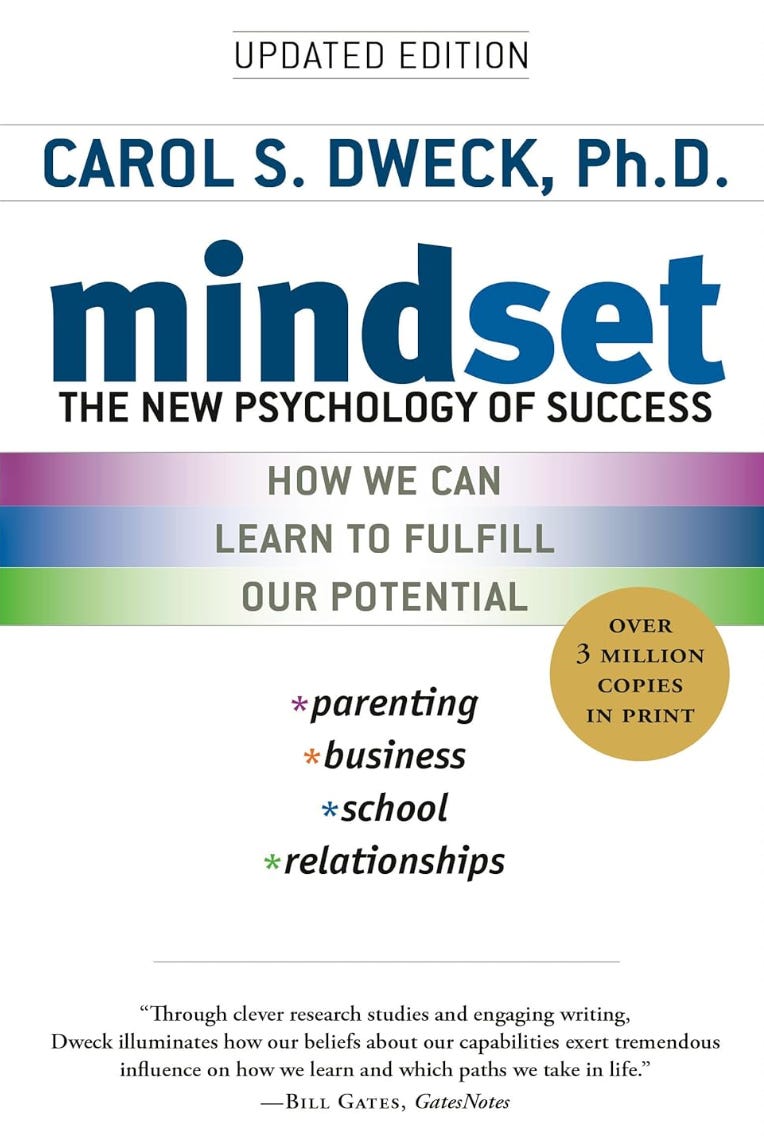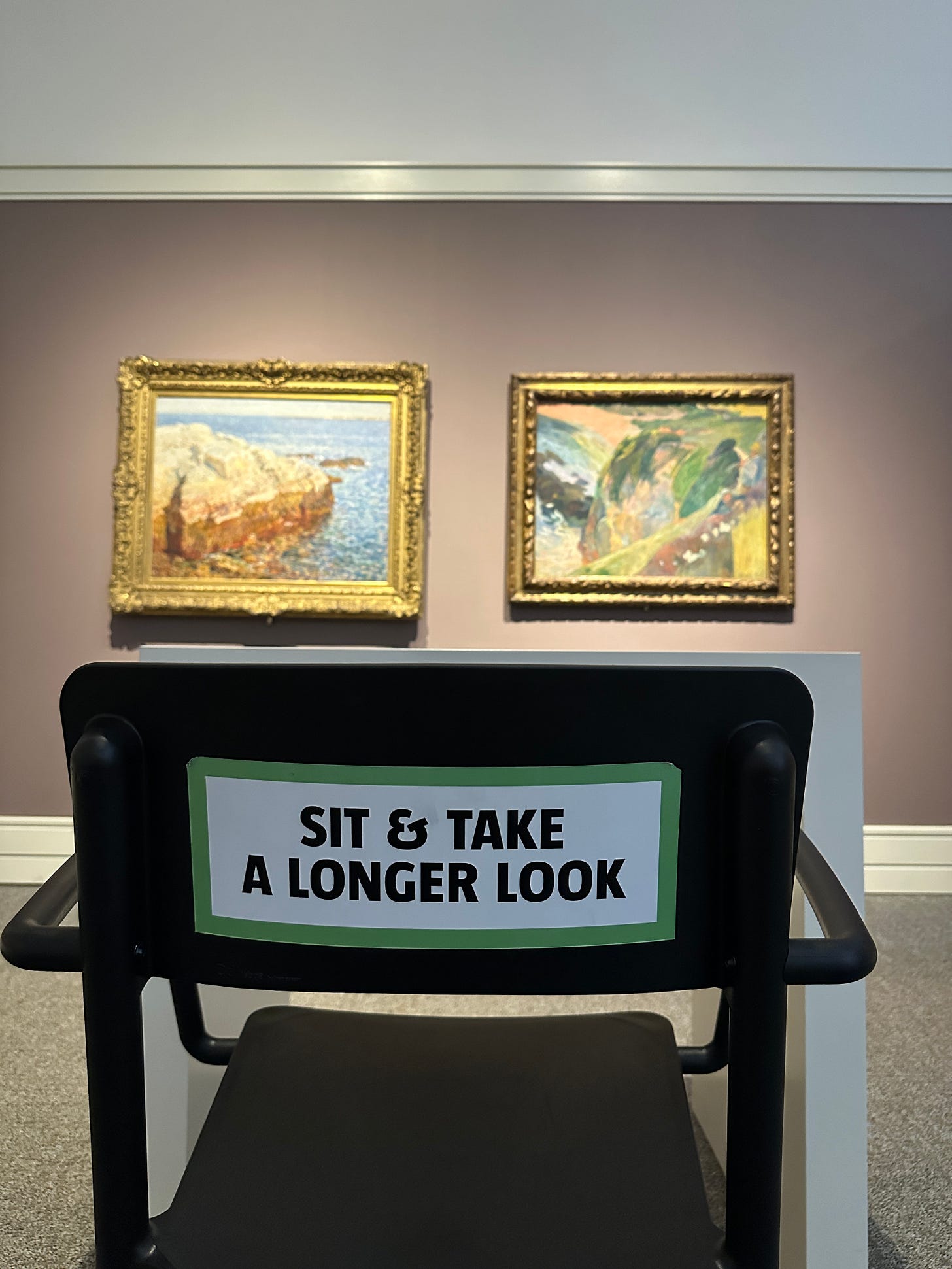Thesis: learning goals > performance goals
As jury and final exam season approaches, I’ve been thinking about how important it is for musicians to adopt a learning goals instead of performance goals as a way of improving their learning capacity, perform at their peak capacity more often, and maintain a healthy emotional relationship with their art.
In music, we tend to emphasize outcomes: winning auditions, gaining acceptance to schools or festivals, earning prizes at competitions. Often, we prioritize a single "successful" performance over the development of the skills that enable that success. Most of my own learning, however, is based upon the assumption of learning for life, the development of sticky knowledge that supports future development.
Amidst all the end-of-year concerts, one thought has been rattling around my brain:
“I should eat more popcorn.”
Wait, no! Well, yes that, but what I meant to say was:
“We should be setting goals for our learning, not for the outcome of single performances.”
Learning goals focus on growth, acquiring new knowledge, and building the capacity for future learning. In contrast, performance goals are about achieving a certain level at a single point in time. Learning goals validate potential; performance goals validate current ability. Performance goals tend to generate performance anxiety if the learning target is not achieved and stress while preparing to hit those targets, leading to a reduced ability to acquire and use new information during the learning period. Learning goals…don’t.
Deciding to focus on the process of learning tends to result in more durable long-term learning, reduced performance anxiety, and a healthier relationship with our work. Because, as James Clear puts it, results are a lagging indicator of work, one can have confidence that their work is…working…without needing the validation of a single successful performance. By the way, a single data point (a concert) is much less helpful than a string of data over a long period of time (a learning process).
Carol Dweck touches on role of weaponized life-long learning in Mindset: The New Psychology of Success. Her work centers on discipline, grit, and the growth mindset—the belief that ability can be developed through effort. The major takeaway is that success depends on more than IQ: it requires persistence, creativity, and a belief in one’s ability to grow. To Dweck, "study skills and learning skills are inert until they’re powered by an active ingredient." That ingredient is the profound realization that the power to improve lies largely within one's own control. In fact, Dweck’s research found that students praised for their intelligence were less resilient than those praised for their effort. Committing to skill development fosters resilience—a vital asset for musicians and learners alike.
✅⁉️
Growth mindset. Check.
Growth = good. Learning goals = good. I like learning!
What do they have to do with one another? The growth mindset takes shape through setting goals focused on dynamic learning rather than fixed targets.Here are some ways I’ve been thinking about fostering learning goals alongside—or even instead of—performance goals?
Iteration and Reflection
One strategy I’ve been exploring is de-emphasizing the importance of single school performances. "The Concert Before the Concert"—which you can read about here—helps us reframe performances as part of an ongoing process rather than an end goal. By iterating, taking on multiple performances of the same repertoire over time, we create more opportunities to assess how we engage with performance anxiety, using tools like self-recording and structured feedback—which I discuss further here.
Through iteration and reflection, we create a “playground” for long-term learning. Each experience builds on the last, strengthening not just our performances but our capacity for growth.
“Circling the Wagons” and Planning Your Work
Performance Goal:
"I want to perform well in my lessons."
Learning Goal:
"I want to learn as deeply as possible for my life, and share my progress during lessons along that journey."
Imagine you’re a student at a music school, attending a private lesson every seven days. Some of us might not have to imagine this! After how many days should you shift your focus from learning new material to preparing to perform it at the lesson? Four days? Five? Three days a week preparing to perform is three days that could have been spent building learning capacity.
To combat this tendency, I recommend mapping out learning over a longer timeline—allowing skills and understanding to develop gradually while still maintaining "old growth" material to share at each lesson. My friend Mike T once discussed the idea that a lesson should not exhaust everything a student knows, in one of our MikeDrop Podcast episodes, which you can find here.
Skills > Repertoire
Person 1
“I need to learn Delécluse Étude No. 1. My mission:
Practice all the licks and phrases
Drill the piece relentlessly until failure is not an option
Become increasingly specific about my interpretation “
Result
Ability to perform Étude No. 1, unless nervous
Rigid sense of what constitutes a “perfect” performance
Stress rises if “perfect performance” isn’t reached.
Likely muscle fatigue
Closed ears from repetition
Person 2
“I need to learn Delécluse No. 1. Yay! My mission:
Learn about Delécluse’s works in order to position the piece within his output.
Practice from Delécluse’s method book, getting to know the basic tenets of French snare drum playing
Practice music very similar to the etude but not exactly the same (how about the etudes in Delécluse’s method book!?)
Spend only a small portion of practice time directly on the etude.
Result
Knowledge of Delécluse’s writing, and with it the ability to quickly learn ANY of his etudes
Improved overall snare drum proficiency.
Increased learning capacity through deliberate critical thinking
A flexible and adaptable approach to interpretation, allowing the performer to adjust based on different performance situations.
One is…better!
Work in progress below:
Setting learning goals over a long time horizon produces powerful, impact performances that compound one’s skill acquisition.
What’s your next learning goal?
This Newsletter and Learning
I started this newsletter with the intention of sharing out the pedagogical materials I’ve developed over my years being inspired by mentors, peers, and students. Creating a publicly available database of ideas about learning and practicing percussion is important to me, as I believe there is a significant gap in pedagogy centered on increasing the learning rather than the performance capabilities of percussionists. I took it public after a year of sending out my missives privately to because I hoped make this journey a conversation, to push back against the dogmatic and one-directional pedagogy so typical in classical music. I hope you consider subscribing, joining the conversation with me, and sharing this newsletter and its sister publication Learn with Mike with someone you think might find it interesting.
Want More?
Some MikeDrop Podcasts that might be interesting…
Episode 23: Getting in Shape
Episode 1: How to Spend Your Summer







